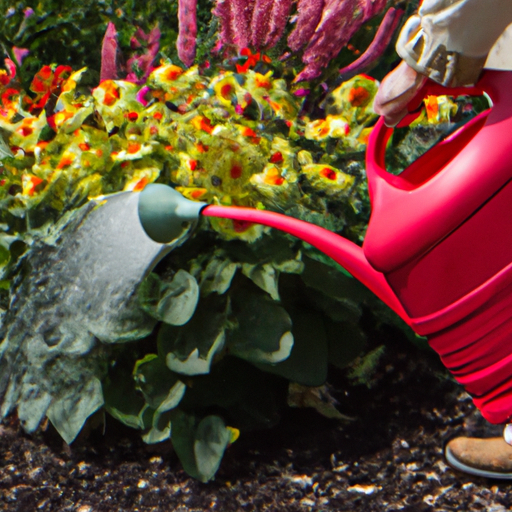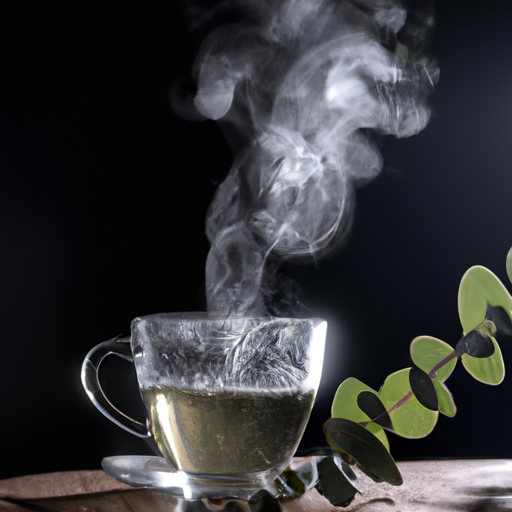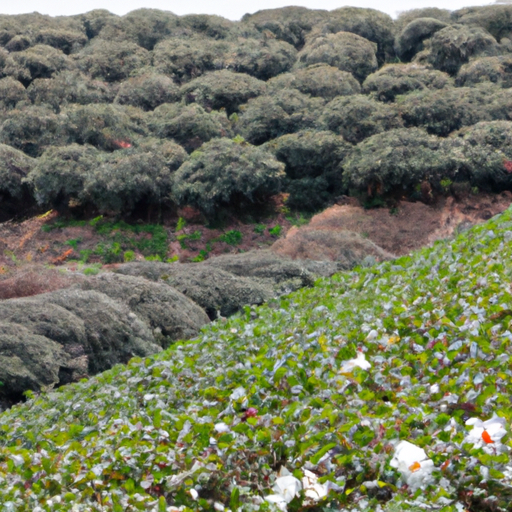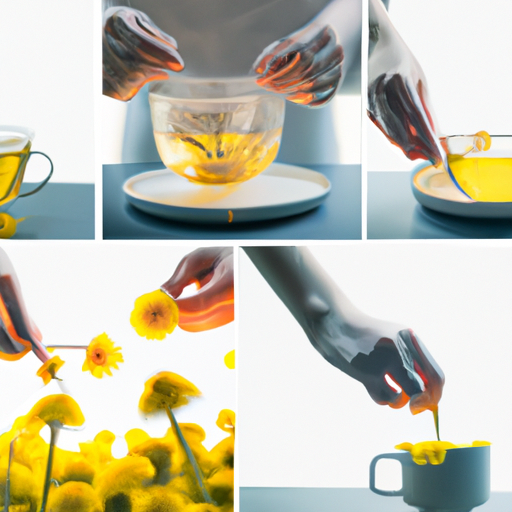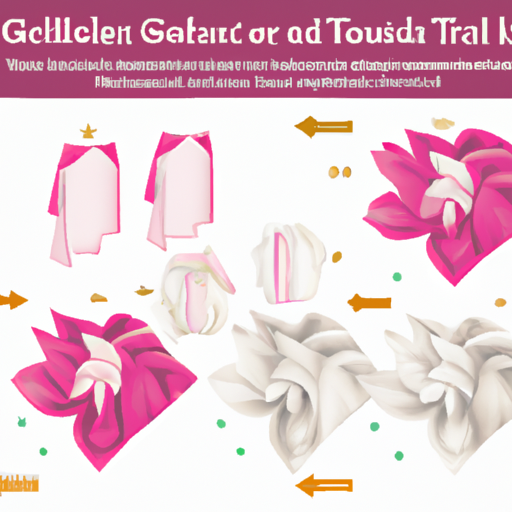During the flowering stage of plants, administering compost tea can greatly improve their growth and productivity. However, determining the ideal timing for this process is crucial. This article will explore the optimal timing for feeding compost tea to plants during the flowering stage.
As a passionate gardener, I have discovered the immense benefits of compost tea and its ability to nourish plants with essential nutrients. In this informative piece, we will explore the flowering stage of plants, the advantages of feeding them compost tea, and the optimal timing for application.
Additionally, I will provide dos and don’ts of late-stage compost tea feeding, ensuring that you make the most of this organic fertilizer. By monitoring plant health and productivity, we can harness the full potential of compost tea, resulting in flourishing flowers and bountiful harvests.
So, let’s dive into the fascinating world of compost tea and unlock the secrets to successful late-stage feeding in the flowering stage.
Key Takeaways
- Feeding compost tea during the flowering stage enhances plant growth and productivity.
- Late-stage compost tea feeding should be cautious with nitrogen-rich teas to prevent excessive vegetative growth.
- Overwatering during the late stage can lead to root rot and fungal diseases.
- Timing compost tea feedings and monitoring plant response is important.
Understanding the Flowering Stage of Plants
Now that you’re in the flowering stage, it’s important to understand the changes your plants are going through. This stage is crucial for plant reproduction, as it is when flowers develop and pollination occurs. Understanding the flowering process will help you optimize plant health and yield.
One key factor in the flowering stage is light. Plants require specific light conditions to initiate and sustain flowering. Different plants have different light requirements, with some needing longer periods of darkness to trigger flowering. It’s important to provide the right amount and intensity of light during this stage to ensure successful blooms.
Now, let’s transition into the benefits of feeding compost tea.
Benefits of Feeding Compost Tea
Have you ever wondered what advantages you gain from nourishing your plants with this nutrient-rich liquid? Feeding compost tea during the flowering stage of plants can have a significant impact on improving yield and enhancing nutrient uptake. Compost tea is a natural fertilizer that contains beneficial microorganisms, nutrients, and enzymes that promote healthy plant growth. These microorganisms help break down organic matter in the soil, making nutrients more available to the plants. When applied to the soil, compost tea can help improve soil structure, increase water-holding capacity, and suppress diseases. In addition, the organic matter in the tea provides a slow-release source of nutrients, ensuring that the plants receive a steady supply throughout the flowering stage. By incorporating compost tea into your plant care routine, you can maximize the potential of your plants and increase their overall health and productivity. Transitioning into the subsequent section about determining the right time to feed compost tea, it is important to understand the optimal timing for the application to ensure the best results.
Determining the Right Time to Feed Compost Tea
Timing is crucial when it comes to incorporating the nutrient-rich benefits of compost tea into your plant care routine. To determine the right time to feed compost tea in flower, consider the following timing considerations:
-
Stage of flowering: It’s best to start feeding compost tea during the early flowering stage when plants require a boost of nutrients for optimal growth and development.
-
Frequency: Apply compost tea every 1-2 weeks during the flowering stage to ensure a continuous supply of nutrients.
-
Time of day: Apply compost tea in the morning or late afternoon when the temperature is cooler, allowing the plants to absorb the nutrients more efficiently.
By timing the application of compost tea correctly, you can optimize nutrient uptake and enhance the overall health and productivity of your flowering plants. Moving forward to applying compost tea to flowering plants, it’s essential to follow the right steps for maximum benefits.
Applying Compost Tea to Flowering Plants
To get the most out of your beautiful blooming plants, it’s time to learn how to apply that nutrient-rich elixir that’ll make them thrive.
When it comes to flowering plants, timing is crucial for optimal nutrient absorption and microbial activity. Applying compost tea during the late stage of flowering can provide a significant boost to your plants’ health and productivity.
The nutrient-rich composition of compost tea enhances the plant’s ability to absorb essential nutrients, promoting robust growth and vibrant blooms. Additionally, the microbial activity in compost tea helps improve soil health, creating a favorable environment for the plant’s root system.
However, it’s important to be cautious during this late stage of flowering to avoid overfeeding or causing any stress to the plant. So, let’s explore the dos and don’ts of late-stage compost tea feeding to ensure your plants continue to thrive.
Dos and Don’ts of Late-Stage Compost Tea Feeding
Make sure you follow these essential guidelines to avoid any potential harm and ensure your plants thrive during this crucial stage of growth. When it comes to late-stage compost tea application, timing is everything.
Here are three key points to keep in mind:
-
Be cautious with nitrogen-rich teas: Late in the flowering phase, plants require less nitrogen to prevent excessive vegetative growth. Using compost tea high in nitrogen content can result in lush foliage but may compromise bud development.
-
Watch out for excess moisture: Overwatering during this stage can lead to root rot and other fungal diseases. Be mindful of the moisture levels in your soil and adjust your compost tea application accordingly.
-
Consider the risk of nutrient imbalances: Late-stage compost tea feeding may disrupt the delicate nutrient balance required for optimal flower development. Monitor your plants closely for any signs of nutrient deficiencies or excesses.
By adhering to these guidelines, you can minimize the potential risks of late compost tea feeding and ensure your plants continue to thrive.
Now, let’s delve into the importance of monitoring plant health and productivity to further support their growth.
Monitoring Plant Health and Productivity
Transition: Now that we know the dos and don’ts of late-stage compost tea feeding, it’s important to monitor our plants’ health and productivity. As a grower, I want to ensure that my plants are receiving the right nutrients and are not showing any signs of stress or deficiency. By closely observing our plants, we can catch any issues early on and address them accordingly.
To help you in monitoring your plants, I have created a table below that outlines common signs of plant stress and nutrient deficiency. This table can serve as a reference guide to identify any potential problems your plants may be experiencing. Remember, early detection is key to maintaining plant health and maximizing productivity.
| Sign of Stress | Nutrient Deficiency | Potential Causes |
|---|---|---|
| Wilting or Drooping | Yellowing Leaves | Underwatering |
| Leaf Curling | Stunted Growth | Overwatering |
| Leaf Yellowing | Brown Spots | pH Imbalance |
| Leaf Spotting | Slow Flowering | Lack of Nutrients |
| Leaf Abnormalities | Poor Fruit Development | Excessive Fertilizer |
By keeping an eye out for these signs and adjusting our compost tea feeding routine as needed, we can ensure our plants thrive during the flowering stage. In the next section, we will discuss how to maximize the benefits of compost tea feeding in this crucial stage.
Conclusion: Maximizing the Benefits of Compost Tea Feeding in the Flowering Stage
By closely monitoring your plants and addressing any signs of stress or nutrient deficiency, you can ensure that your plants thrive during the crucial flowering stage. This stage is critical for maximizing nutrient absorption and optimizing yield potential.
Compost tea can be a valuable tool in supporting plant health during this stage. However, it’s important to consider the timing of compost tea feeding in order to maximize its benefits. It’s generally recommended to feed compost tea in the early stages of flowering, when the plants are actively taking up nutrients. Late-stage feeding may not be as effective, as the plants may be nearing the end of their nutrient uptake period.
By carefully timing your compost tea feedings and monitoring your plants’ response, you can make the most of this organic fertilizer and promote healthy growth and abundant flowering.
Frequently Asked Questions
Can compost tea be used as a foliar spray during the flowering stage?
During the flowering stage, using compost tea as a foliar spray is like giving your plants a refreshing shower. It provides nutrients, promotes healthy growth, and enhances nutrient uptake. It’s a beneficial practice to incorporate into your gardening routine.
How often should compost tea be applied to flowering plants?
To maximize the benefits of compost tea for flowering plants, it is recommended to apply it every 1-2 weeks. This helps to provide essential nutrients and beneficial microorganisms, promoting healthy growth and vibrant blooms. Regular watering is also important for optimal plant health.
Is it necessary to dilute compost tea before applying it to flowering plants?
Yes, it is necessary to dilute compost tea before applying it to flowering plants. Dilution ensures that the nutrients are evenly distributed and prevents the tea from burning the plants. However, the benefits of compost tea, such as improved soil health and plant growth, make the dilution process worthwhile.
Can compost tea be used in conjunction with other fertilizers during the flowering stage?
Compost tea can be used alongside other fertilizers during the flowering stage, enhancing plant health and productivity. Its effectiveness lies in the beneficial microorganisms and nutrients it provides, promoting nutrient uptake and overall plant vigor.
What are the signs that indicate plants are receiving too much compost tea during the flowering stage?
When I gave my plants too much compost tea during flowering, their leaves turned yellow, curled, and started drooping. The excessive tea disrupted nutrient uptake, stunted flower development, and they didn’t bloom as beautifully as expected.
Conclusion
In conclusion, feeding compost tea in the flowering stage of plants is a beneficial practice that can significantly enhance plant health and productivity. Research has shown that plants treated with compost tea during this stage have been found to produce up to 35% more flowers compared to those that weren’t treated.
By providing essential nutrients and beneficial microorganisms, compost tea promotes strong root development, improves nutrient uptake, and enhances overall plant vitality. So, don’t miss the opportunity to maximize your flower yield by incorporating compost tea into your late-stage feeding regimen.

